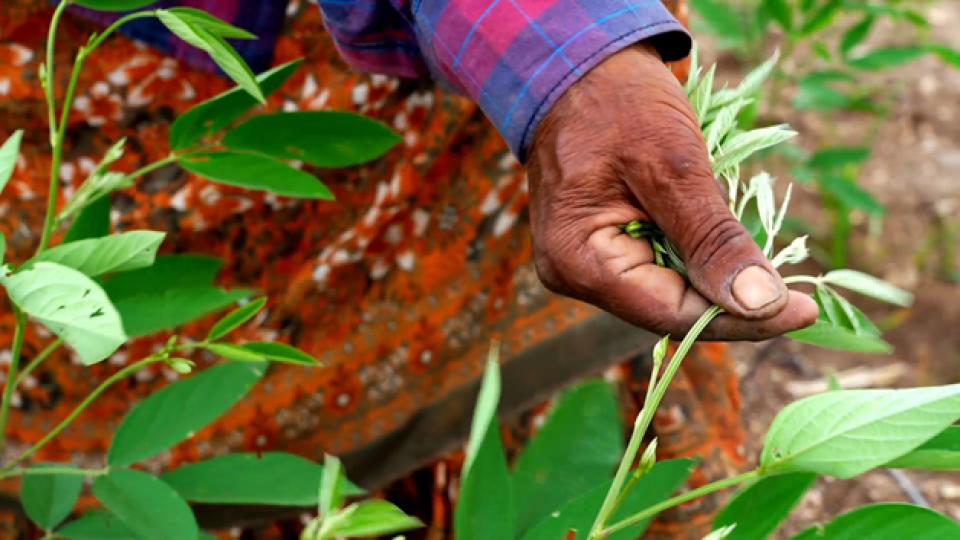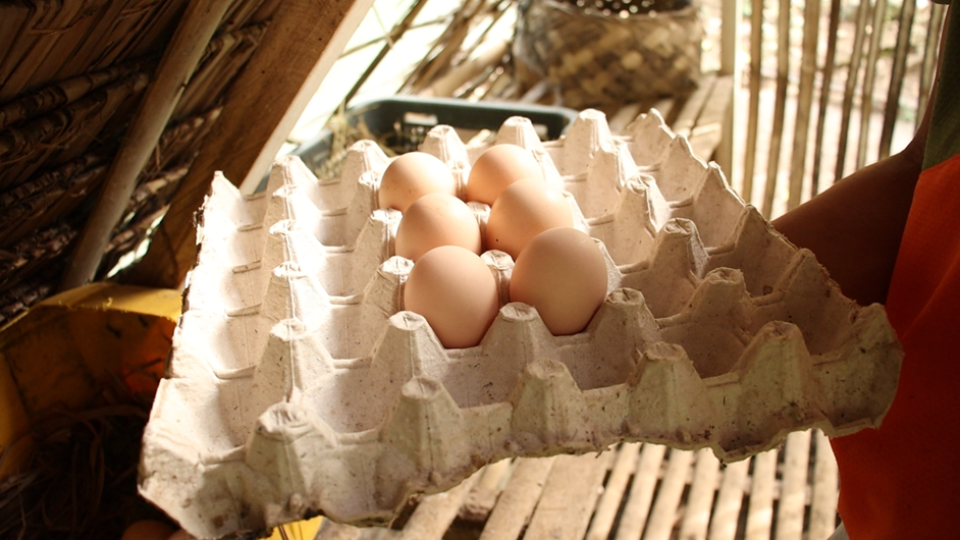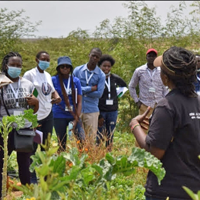
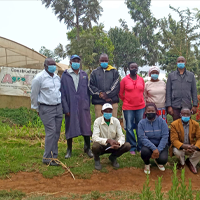
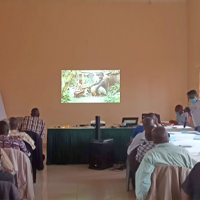
Today, she is well known in Kenya and beyond for her successful organic business ‘Sylvia’s Basket,’, which she launched in 2016 in Limuru, central Kenya. But at heart, Sylvia Kuria remains the same young mother, who decided over 12 years ago to produce organic vegetables in her kitchen garden, so that her children could have safe and healthy food.
“I am now on a mission to share this knowledge, so that every mother on the African continent can feed her children food free from chemicals, food that will nourish and not harm, food that is safe and accessible,” Sylvia said. As a passionate advocate for organic food, she is sensitising mothers on why they should stop giving their children food sprayed with toxic substances.
The increasing use of pesticides on horticultural crops in Africa has become a matter of grave concern because of their impacts on human and environmental health. Moreover, Africa has over 50 million children who are stunted because of malnutrition. A nutritious and more diversified diet with plenty of vegetables in early childhood can lead to a healthier future for children.
As Sylvia’s kitchen garden began to flourish, she was able to sell the surplus harvest to her friends in the city. “That is how my company Sylvia’s Basket was born,” she recounted. Deciding to scale up her organic farm business she acquired about 6 hectares of land in Limuru.
In 2019, she opened a shop in Nairobi to make fresh organic food accessible to all her customers. Her main clients are young mothers, whom she reaches through her social media channels. Most of them come through customer referrals.
Since her neighbours kept stopping by her garden to enquire how she was able to grow a large variety of vegetables, Sylvia volunteered to train them on how to set up kitchen gardens and grow their own vegetables, using agroecological principles - especially young mothers of her community. “The kitchen garden satisfies their nutritional needs, provides them with food, and a source of cash too,” Sylvia said.
As she was looking for useful resource material, which she could use in her training, she came across the quality farmer training videos of Access Agriculture by pure chance at the First International Conference on Agroecology in Kenya in 2019. Access Agriculture (www.accessagriculture.org) hosts over 220 quality training videos in more than 90 international and local languages that can be freely viewed or downloaded anywhere in the world.
“Several Access Agriculture videos are available in our local language ‘Kikuyu’, which means all the members of our farming community are able to understand the agroecological practices and principles shown in the videos,” Sylvia said. “I find these videos extremely effective, and I like the way they communicate information so that people will not forget what they have learnt.”
The Ndeiya region in Limuru, where Sylvia is based, is semi-arid, where the agroecological conditions are too harsh for cash crops to grow. The local communities face food insecurity for most part of the year. “So, the only way to get food and nutritional security was to teach our women to grow their own food throughout the year and this is the reason, why some of the videos relating to sustainable land management are very useful,” Sylvia explained.
Since Access Agriculture rolled out its model of Entrepreneurs for Rural Access in Kenya, each of whom is equipped with a solar-powered smart projector that contains the entire library of Access Agriculture videos, Sylvia has been able to hire the services of one of the young entrepreneurs located near her to screen relevant videos for her farming community.
“We are off grid with no electricity and have found the solar projector kits very beneficial for our trainings,” said Sylvia. “We enjoy watching and learning from the videos as these show very practical solutions that are easy to apply. In fact, our farmers are so excited watching the videos that it is often difficult to stop they from watching. They like the videos on pest management the most.”
Sylvia has been collaborating with local and international organisations to equip over a thousand women and small-scale farmer groups throughout Kenya with basic concepts of organic farming. In 2019, she was invited to be a master trainer in organic farming by the GIZ-funded Knowledge Centre for Organic Agriculture in Africa (KCOA) project.
“There is a growing awareness and demand for organic food and farmers are ready to listen and take it up, because of the effects of climate change, food insecurity and soil degradation. We aim to support farmers access markets for their produce and make organic produce affordable for consumers,” Sylvia explained.
To do this, she is now focusing on the entire value chain from organic food production to marketing, working with small-scale certified organic farmers from the Kenya Organic Agriculture Network (KOAN) and the Participatory Ecological Land Use Management (PELUM) Association to provide the farmers with a reliable market for their produce.
“Safe food is a fundamental human right! I believe kitchen gardens are a pathway to giving us food security and even saving the world,” Sylvia remarked. “My vision for the African continent is to train and support as many farmers as possible so that we can enjoy the best of our resources and leave a lasting legacy for our children.”

